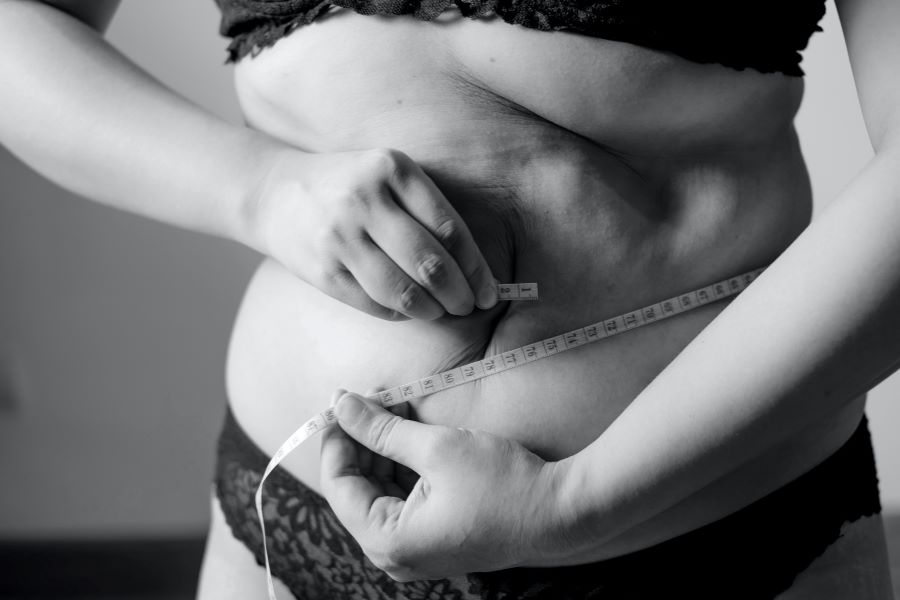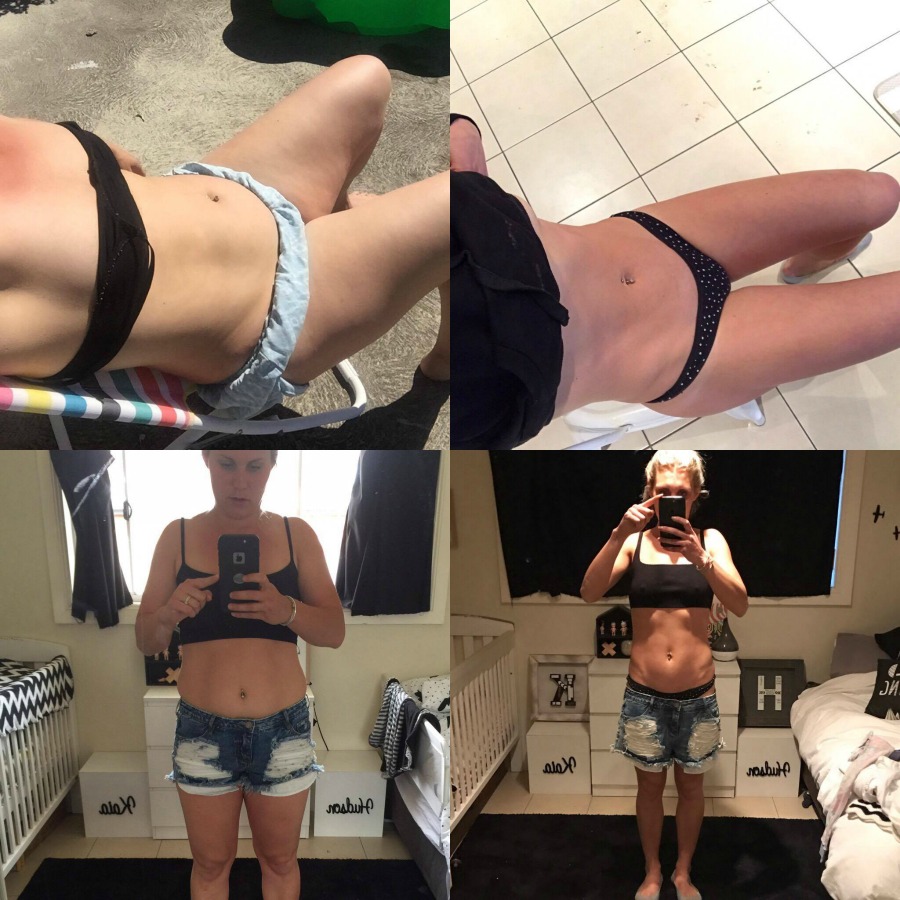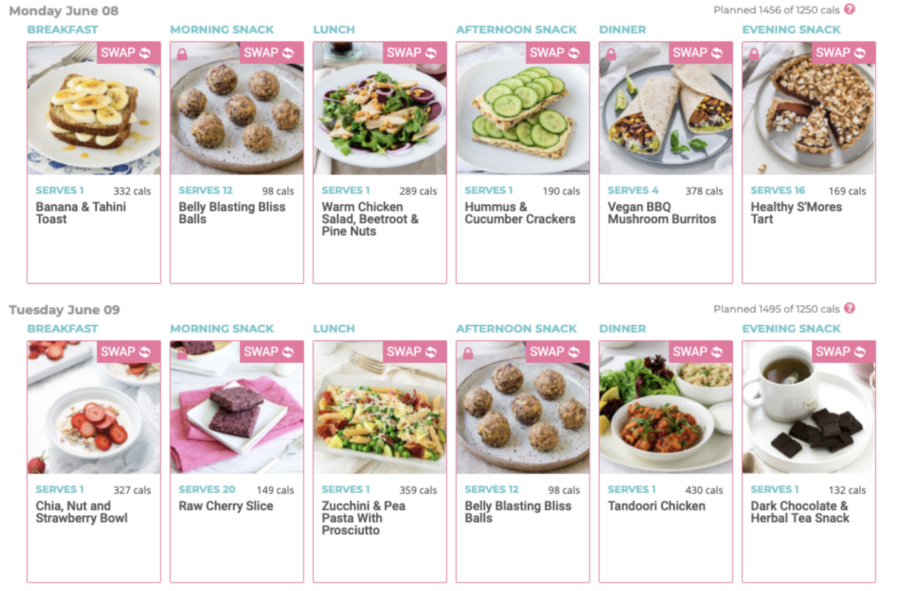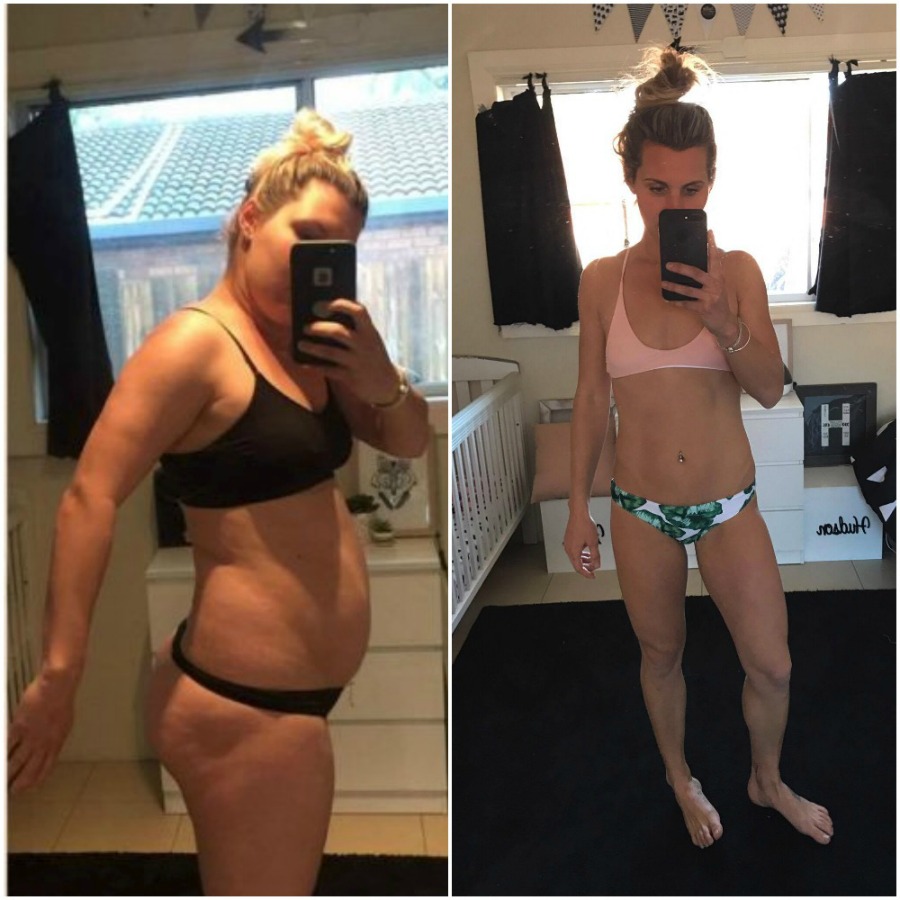Carrying stubborn fat around your middle may be a side effect or symptom of a more significant health condition, such as polycystic ovary syndrome (PCOS), an underactive thyroid, or irritable bowel syndrome (IBS).
Read on to learn the following:
- What does a PCOS belly look like?
- How can you help shift this fat if you are suffering from one of these conditions?
- What foods should you eat? Which should you avoid?
Jump ahead to find out more:
While chatting to your GP should be your first port of call, Healthy Mummy nutritionist Elisha Danine is here to share her knowledge and insight.
Here’s what Elisha has to say about these conditions and blasting belly fat…

What Does a PCOS Belly Look Like?
Most people think of a PCOS belly as being large and bloated. However, there is no one type of PCOS belly. Some women with PCOS may have a small, round belly, while others may have a larger, more diffuse belly. Still, others may not have any noticeable stomach changes at all.
Other common features that many women with PCOS share include:
- Abdominal bloating
- Weight gain
- Dark patches of skin on their necks or faces, known as acanthosis nigricans
Irregular periods - Excess facial and body hair growth
So, if you’re wondering what a PCOS belly fat might look like, keep an eye out for these signs. And remember, if you think you might have PCOS or any other illnesses like an underactive thyroid Or IBS, you must see a doctor for proper diagnosis and treatment.
How to reduce belly fat if you suffer from PCOS, underactive thyroid, and IBS
As a holistic nutritionist, Elisha believes most diseases stem from some sort of inflammation.
“Conditions such as IBS (Irritable Bowel Syndrome), PCOS (Polycystic Ovary Syndrome), and thyroid imbalance can all be attributed to inflammation in the body,” she says.
“This also corresponds directly to inflammatory foods in the diet. We can do certain things, such as reduce the amount of processed foods we consume and concentrate more on eating whole foods.”

Inflammation can potentially lead to weight gain, worsen insulin resistance and make it harder to shift stubborn fat, such as belly fat.
Foods to reduce inflammation
Foods to include in your diet to reduce the likes of inflammation include leafy green vegetables. Leafy green vegetables have an incredible detoxifying effect on the body.
Leafy greens include:
- Spinach
- Rocket
- Kale
- Broccoli
- Watercress
- Bok choy
Leafy greens contain many phytochemicals, which are plant compounds that offer disease prevention.
Berries such as blueberries, blackberries, and raspberries also help reduce toxic load as they contain antioxidants that reduce free radicals from environmental toxins.
Elisha suggests eating at least one serving of green leafy vegetables and one serving of berries daily.

What foods to avoid
A diet too heavy on wheat and other heavily sprayed grains can adversely affect your health and ability to shift belly fat.
Choosing organic can help to reduce the toxic load, or avoiding gluten-containing grains such as barley, wheat, rye, and oats can help.
Gluten can cause toxicity when you have small holes in the intestine or a leaky gut.
Gluten then gets into the bloodstream – where it shouldn’t be, and our body can create an immune reaction to this. This can show in the form of IBS symptoms, thyroid imbalance, or other inflammatory conditions.
Sugar can also cause inflammation when we eat too much of it.
The World Health Organisation suggests we consume a maximum of 6 teaspoons or 25g of total sugars in the diet PER DAY.
Start by cutting out added sugars in soft drinks, biscuits, cakes, lollies, packaged foods, sauces, and condiments.
“Your body will thank you for it,” says Elisha.
As part of the 28 Day Weight Loss Challenge, you can choose the Customer Choice Meal Plan, which contains recipes to help those with Polycystic Ovary Syndrome (PCOS).
And it is now live!

Sascha lost 32kg and toned up her tummy despite suffering from PCOS

Sascha Farley reveals she overate when she was pregnant, then struggled to shift the extra weight after she gave birth.
“I suffer from PCOS, so I have to work extra hard to shift the belly weight,” she says.
“But after I gave birth, I was tired and constantly thinking about food. After that, I looked in the mirror and was totally shocked at how much I’d put on.”
Sascha decided to tackle her weight loss woes and joined the 28 Day Weight Loss Challenge.
“The Healthy Mummy has changed my life. It pushed me to be more educated, and it made me explore food on a deeper level and experiment, as well as exercise three times a week and work on my tummy and core,” she adds.
“I now make better food choices, such as drinking more water and eating lots of greens and vegetables. I’ve never looked back. I’ve developed a lifelong, healthy relationship with food.


Are you ready to become a Healthy Mummy?

